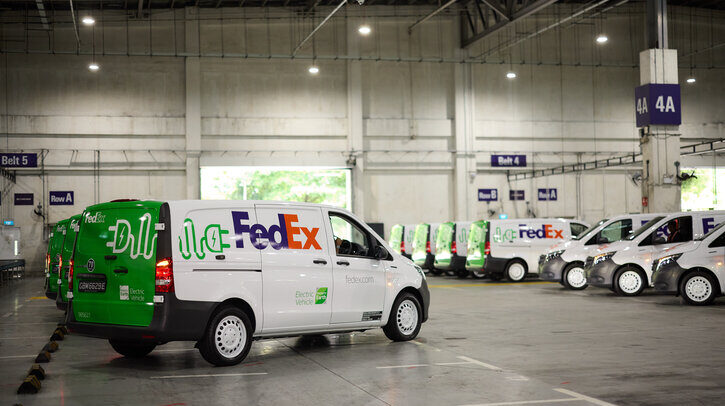Singapore is the first market within the FedEx Asia-Pacific network to deploy custom-built Mercedes-Benz eVito vans to support its parcel pickup and delivery operations across the country.
The electric vehicles (EVs) offer a 923kg load capacity and an estimated range of up to 321km on a full charge. Collectively, the vehicles are estimated to avoid around 148 metric tons of tailpipe emissions per year compared with diesel-powered vans.
According to FedEx, the addition of these 31 new vehicles to its fleet marks a significant step toward the company’s commitment to sustainability in Singapore and its ongoing efforts to achieve zero tailpipe emissions for last-mile parcel delivery operations across its global operations.
To further improve the efficiency of the Singapore fleet, FedEx is using its AI-powered Stops Sequencing tool, which is designed to optimize delivery routes in real time based on package volume and customer requests. By intelligently planning delivery stops, the tool helps reduce total mileage traveled each day, contributing to greater reductions in fuel and energy consumption and, as a result, fewer carbon emissions.
“FedEx is committed to connecting people and opportunities in smarter ways,” stated Kawal Preet, president of FedEx Asia-Pacific. “With the introduction of these electric vehicles, we are taking meaningful steps to lower greenhouse gas emissions while improving our efficiency, directly supporting Singapore’s bold sustainability initiatives. This is an important milestone on our path to achieving carbon-neutral operations by 2040, as we work to build a cleaner and more efficient logistics network that promotes sustainable growth throughout the Asia-Pacific region.”
Earlier this year, FedEx completed the first cross-border delivery between Malaysia and Singapore with an EV, which was recognized by the Malaysian Book of Records. This initiative is part of the company’s broader efforts to reduce emissions for long-distance deliveries. In other Asia-Pacific markets, electric tricycles were introduced for last-mile deliveries in congested urban areas in Taiwan, while electric trucks and vans have been introduced in Japan and Thailand, advancing the company’s sustainability goals.


